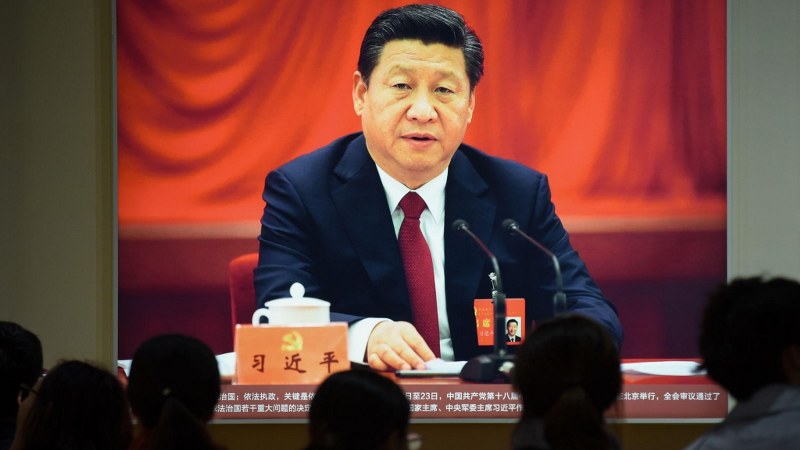US spy agency sees China will exert more pressure on Taiwan during Xi's third term

Taipei: A report released by a US intelligence community has said Beijing will continue to press Taiwan on unification and try to undercut US influence in the region as Chinese leader Xi Jinping begins his third term as the President of the country.
The conclusions were made as part of the "Annual Threat Assessment of the US Intelligence Community" issued by the Office of the Director of National Intelligence (ODNI), which was presented to Congress on Wednesday, reports Focus Taiwan.
In the report, the ODNI said that as Xi begins his third term in office, the Chinese Communist Party (CCP) will work to press Taiwan on unification, undercut US influence and drive a wedge between Washington and its partners.
Beijing sees US-China relations as part of an "epochal geopolitical shift," the report said, and therefore views Washington's measures against it as part of a broader US effort to "prevent China's rise and undermine the CCP's rule."
The ODNI said China was increasingly combining its growing military power with its economic, technological and diplomatic influence to strengthen CCP rule, secure its territorial claims and pursue global influence.
At the same time, however, the country faces challenges from an aging population, high levels of corporate debt, economic inequality, and resistance to the PRC's "heavy-handed tactics" in Taiwan and elsewhere, it said.
On the issue of Taiwan, the report said that in 2023, Beijing will continue to apply pressure and possibly offer inducements for Taiwan to move toward unification, while also reacting to what it views as increased US-Taiwan engagement, reports Focus Taiwan.
For instance, it said that Beijing could take "stronger measures" to push back on perceived increases in support for Taiwan, such as by carrying out more Taiwan Strait median line crossings or missile overflights of Taiwan.
What is the basis of China’s claim over Taiwan?
The basis of China’s claim over Taiwan dates back to 1945 when Japan lost its control over the island in 1945, post-World War Two.
The 1949 Chinese civil war lead to communists taking control and Chiang Kai-shek the one who lost fled to Taiwan. He ruled it for many decades.
This is where China’s claim to Taiwan emanates.
The very fact that Chiang Kai-shek came to Taiwan and was not indigenous to the place is Taiwan’s argument against the claim.



